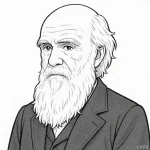“The good man is the friend of all living things.”

- October 2, 1869 – January 30, 1948
- British Indian Empire
- Lawyer, religious leader, social activist, political leader
table of contents
Quote
“The good man is the friend of all living things.”
Explanation
In this statement, Mahatma Gandhi emphasizes the concept of universal compassion and empathy. He suggests that a truly good individual does not discriminate between living beings but recognizes the intrinsic value of all forms of life. This aligns with his core principle of ahimsa (nonviolence), which advocates for peace, respect, and kindness not only toward humans but also toward animals and nature. The good person, in this view, is one who sees themselves as part of a larger ecosystem, where all living things—human, animal, or plant—are interconnected and deserving of care and respect.
Gandhi believed that a person’s moral development was reflected in how they treated others, both human and non-human. The good man, therefore, is one who practices empathy by understanding the suffering of others, and acts to alleviate that suffering without causing harm. This notion of goodness challenges the conventional view of morality, which often focuses exclusively on human relationships, to include a broader, more holistic view of ethical living.
In a modern context, this idea can be applied to issues such as animal rights, environmentalism, and social justice, where the treatment of animals and the environment reflects an individual’s or a society’s moral compass. It calls for a more inclusive definition of goodness—one that values the well-being of all living creatures and fosters a spirit of compassion, coexistence, and sustainability.
Would you like to share your impressions or related stories about this quote in the comments section?




